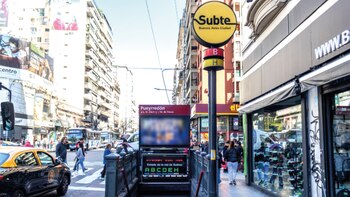
(ATR) With 10 days left to go before the end of the 2018 Olympic Winter Games in PyeongChang, novice South Korea is on its way to earning its stripes.
The first week of competition has been marked by an uncanny dependability. Whether transport, crowd movement or operations for athletes and media, it’s all working well.
The weather has done its best to disrupt the proceedings. High winds have affected the outdoor events. Alpine events in the mountains were postponed; on the coast, the Olympic Park in Gangneung was shuttered for safety Wednesday night after it suffered minor damage.
But now even the weather beast is cooperating. The final week of the Games should become warm enough to bask in the sun. Temperatures will climb at least into the 10c range with lows slightly below freezing. On the coast, even warmer conditions are predicted with little prospect for snow or rain.
At the end of January, PyeongChang seemed to be on course to hold the coldest Winter Olympics since Lillehammer in 1994. Daytime highs registered -5c or more. Now the conditions resemble Sochi in 2014, the first Winter Games held in the sub-tropics.
Unlike Sochi, PyeongChang has avoided accommodation disasters for the foreign visitors. Media have new, fully functional housing with locking doors, plumbing that works and a near seamless transportation system.
Yes, there have been glitches. Unfortunately most were late at night when more passengers than bus seats were available after ski jumping ended after midnight.
Daily meetings of the IOC with the organizing committee appear to have kept the Games from veering into any chronic problems. Fix it and move on.
Traffic?
The curse of Rio in 2016, a pain in Sochi.
In PyeongChang there is none. The day after opening ceremony I witnessed the first traffic jam in downtown PyeongChang that I have seen in 15 years visiting this hamlet. Since then, the traffic is back to normal -- that is, a constant stream of buses and Kias covered with Olympic branding heading out to venues and villages with near zero delay.
Sadly lacking is the joie de vivre of past Winter Olympics where crowds jostled in downtown plazas and parks. PyeongChang is a quiet place at night so far, even the Olympic Park and a similar common domain in Gangneung near the skating venues.
The crowds are just not there. Koreans aren’t big winter sports fans. The rabid fans from Europe and North America face a big hike to get here and not the best selection of accommodations after media and Olympic Family grab the best.
A lost telephone was a distress to one member of the ATR team. But I knew that if found, in Korea it would be returned. It took almost a week, but phone and owner are reunited. Such a happy ending would have been doubtful in some past host cities.
Missing from the mix in PyeongChang is the boisterous presence of Russia. Olympic Athlete from Russia is not the same as athletes boldly clad in Bosco who participated prior to IOC sanctions for doping. The whole business with OAR -- the sanctions -- has been a confusing mess that is the IOC’s problem. Korean organizers have handled the protocol side smoothly.
The hubbub over North Korea taking part in these Games has ensured they will be remembered geopolitically. It’s too bad the certainty of the DPRK team wasn’t set long ago. Knowing the North Koreans would be coming might have eased overseas worries about coming here.
There is little fear of trouble here in PyeongChang. A relaxed mood belies any hint of worry about the northern neighbors just 100km away.
Events at the Games with DPRK athletes have drawn capacity crowds, but the novelty is also fading. But in place of North Korea, the final week brings an array of new Olympians to capture some attention. The women’s bobsleigh team from Nigeria is poised to delight if they can get their sled back.
Stay tuned.
Reported and written by Ed Hula in PyeongChang.
Forgeneral comments or questions, click here.
25 Years at #1: Your best source of news about theOlympics is AroundTheRings.com, for subscribersonly.
Últimas Noticias
Utah’s Olympic venues an integral part of the equation as Salt Lake City seeks a Winter Games encore
Utah Olympic Legacy Foundation chief of sport development Luke Bodensteiner says there is a “real urgency to make this happen in 2030”. He discusses the mission of the non-profit organization, the legacy from the 2002 Winter Games and future ambitions.

IOC president tells Olympic Movement “we will again have safe and secure Olympic Games” in Beijing
Thomas Bach, in an open letter on Friday, also thanked stakeholders for their “unprecedented” efforts to make Tokyo 2020 a success despite the pandemic.

Boxing’s place in the Olympics remains in peril as IOC still unhappy with the state of AIBA’s reform efforts
The IOC says issues concerning governance, finance, and refereeing and judging must be sorted out to its satisfaction. AIBA says it’s confident that will happen and the federation will be reinstated.

IOC president details Olympic community efforts to get Afghans out of danger after Taliban return to power
Thomas Bach says the Afghanistan NOC remains under IOC recognition, noting that the current leadership was democratically elected in 2019. But he says the IOC will be monitoring what happens in the future. The story had been revealed on August 31 in an article by Miguel Hernandez in Around the Rings

North Korea suspended by IOC for failing to participate in Tokyo though its athletes could still take part in Beijing 2022
Playbooks for Beijing 2022 will ”most likely” be released in October, according to IOC President Thomas Bach.



